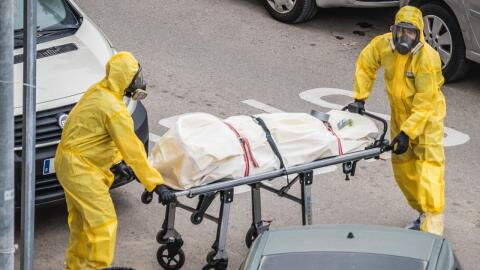On Monday morning (29 November), Scottish authorities revealed that the new variant of concern, Omicron, had officially entered the territory and had already infected six people—increasing the total number of cases in the United Kingdom from three to nine in a matter of days.
Discover our latest podcast
Omicron outbreak
According to the health department, four of the cases were identified in the Lanarkshire area, and the remaining two were found in the Greater Glasgow and Clyde area. Health Secretary Humza Yousaf announced that the authorities are working hard to trace and contain the virus. She said:
This will be a worrying time for the six people now identified as having the new variant.
All will receive expert help and support and Public Health Scotland will undertake enhanced contact tracing in all cases.
This will help establish the origin of the virus and any further individuals they have come into contact with in recent weeks.
Fresh restrictions
Although very little is known about the virus and its level of transmissibility, governments all over the world have been taking strict action to reduce its potential threat after the World Health Organisation declared it as a variant of concern on 26 November.
The UK, in particular, has reintroduced PCR testing for travellers entering the country, along with mandatory face coverings in shops and public transportation. Furthermore, the government has added ten new countries to the red list, including South Africa—where the variant was first discovered, Namibia, Botswana, Angola, Zimbabwe, Malawi, Zambia, Lesotho, and Eswatini.
The Scottish government is planning to adopt the same restrictions, as well as the expanded red list, but Yousaf also mentioned that they are willing to go even further if the circumstances become worse. She added:
Until more is known we must be cautious and do everything we can to minimise the risk of spreading infection.
We reserve the right to go further if necessary.















